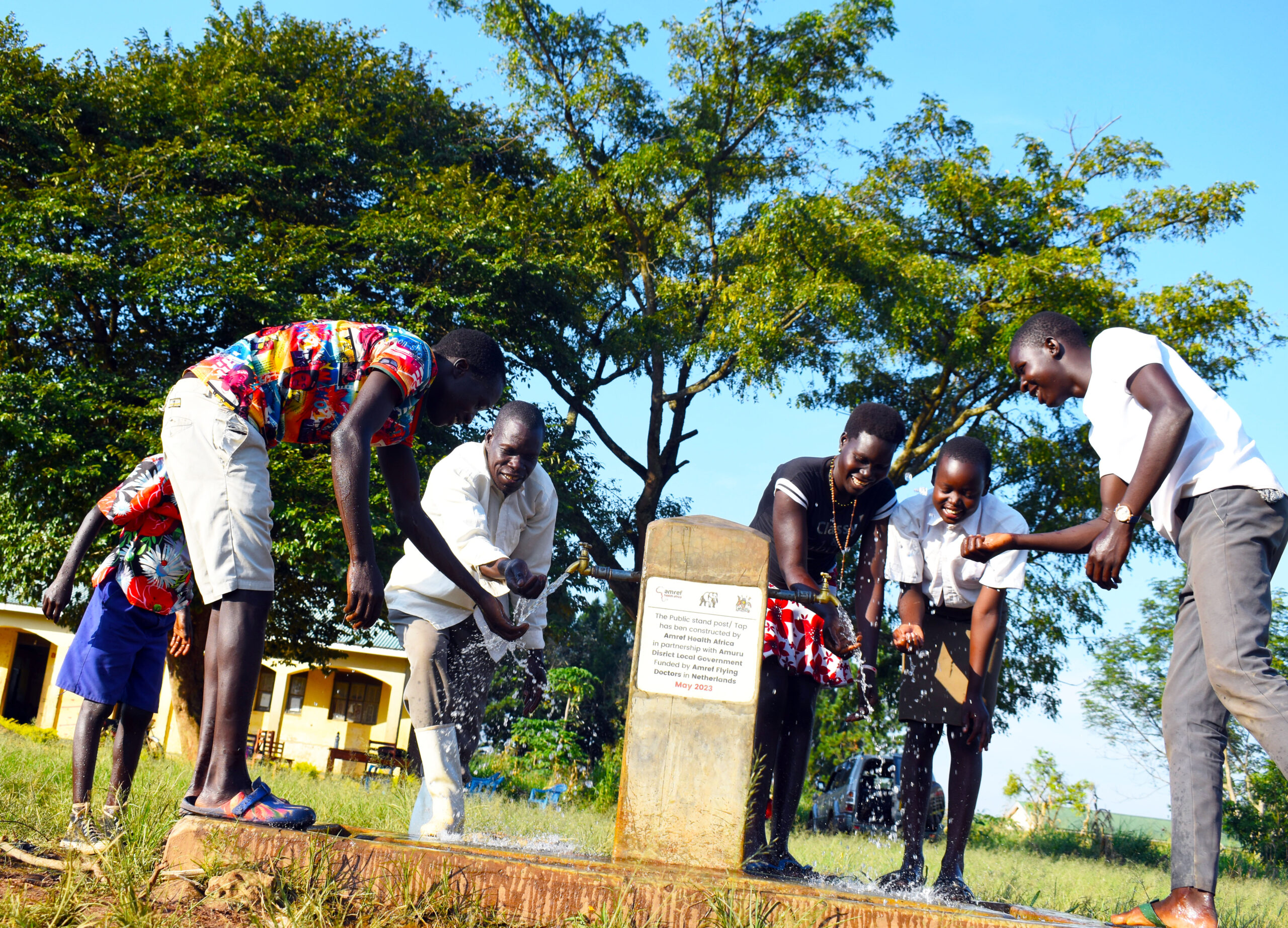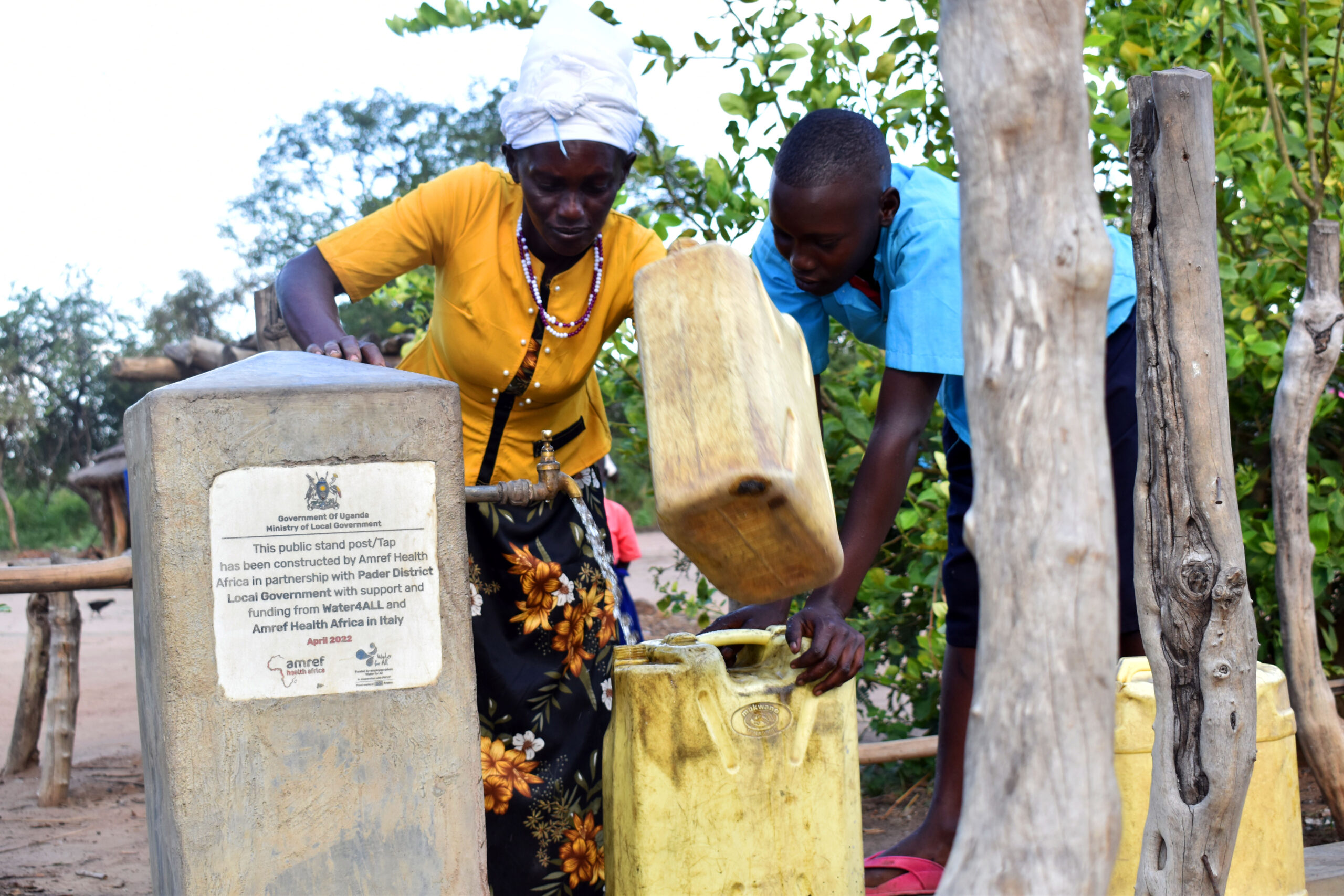More Clean Water For Pader.
Friday, 13 September, 2024

Project Overview:
The Solar Pader Phase II project, with a total budget of EUR 796,827, is set to continue its impactful work in Pader District, Uganda. This initiative is funded by the Wallenberg Foundation and Prosolidar Foundation through Amref Italy Office. The project’s primary goal is to enhance the provision of sustainable solar energy solutions to health facilities in the region, building on the success of Phase I.



Project Overview: Solar Pader Phase II
The Solar For Pader Phase II project, with a budget of EUR 796,827, is a key initiative aimed at enhancing Water Sanitation and hygiene delivery through sustainable energy solutions in Pader District, Uganda. Funded by the Wallenberg Foundation and Prosolidar Foundation through Amref Health Africa in Italy, this project builds on the successful outcomes of Phase I. The primary objective of Solar Pader Phase II is to further improve health services by expanding solar energy access to additional Communities with a focus on primary schools, health facilities, and households ensuring reliable and cost-effective solar power, and long-term sustainability.
Key Achievements of Phase I
Phase I of the Solar Pader project made a transformative impact on communities in Pader District by addressing critical water needs. The notable achievements include:
- Installation of Solar Systems: Solar power systems were successfully installed in multiple communities , providing a reliable and renewable energy source for uninterrupted water supply.
- Improved school attendance for girls : Access to clean water in Pader District has transformed the lives of young girls, reducing the burden of water collection. With more time for school, attendance rates have significantly improved. Empowering girls through water access is a vital step toward a brighter future.”
- Improved access to water : Solar-powered piped water at the doorstep has revolutionized family life, reducing the time spent fetching water and improving health, hygiene, and overall well-being. Families now have more time for productive activities, creating a ripple effect of positive health and economical change.
- Positive Community Impact: The continuous availability of essential health service and water due to stable power supply has led to improved community health outcomes and trust in the healthcare system.
Impact of Phase I
The results of Phase I were profound, both for girl child well being , women and improved access to water at healthcare facilities and the broader community:
- Improved Access to Water: The project significantly enhanced access to clean water in healthcare facilities and the broader community, reducing the time spent by women and girls fetching water and ensuring a reliable water supply for medical services.
- Enhanced Girl Child Well-being: By providing safe, accessible water, the project contributed to better health and hygiene for girls, reducing waterborne diseases and freeing up time for education and personal development.
- Empowered Women in WASH Governance: The project empowered women by involving them in water management committees, promoting their leadership roles in managing and maintaining the water systems, and ensuring sustainability.
Phase II Objectives
Solar Pader Phase II aims to expand on these successes by increasing solar energy coverage to more health centers across Pader District, thereby amplifying the positive outcomes seen in Phase I. The specific goals for Phase II include:
- Expanding Solar Installations: Installing additional solar power systems in communities to further reduce reliance on unprotected water sources long distances in search of water.
- Capacity Building and Training: Offering comprehensive training for community members on solar technology maintenance and its benefits, ensuring the long-term sustainability of the installations.
The Solar Pader Phase II project is poised to significantly advance access to clean water and reduce water born disease thus reducing the burden on the healthcare system in Pader District by leveraging sustainable solar energy solutions. Building on the profound achievements of Phase I, this phase will extend the reach of solar-powered water services, improve Hygiene and sanitation, and ensure long-term sustainability. By doing so, it will continue to improve health outcomes, reduce environmental impact, and empower the local community, marking a significant step towards achieving a resilient and sustainable healthcare system in Uganda.



